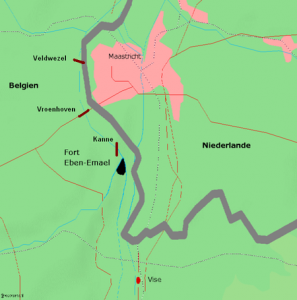Staff Sergeant Harry Howard (1919-2015)
Unit: No 15 Platoon, 'F' Squadron, No. 2 Wing, The Glider Pilot Regiment
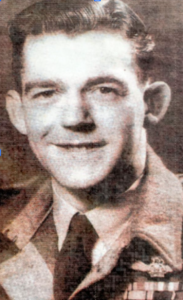
Henry (Harry) Howard [GP6D-JWK] was born in 1919 to Winifred Sutton [GP6D-JQX] and James Howard [GP6D-S3B]. They lived in Station Road, Barton. Winifred was one of four sisters whose parents ran the Blue Bell public house in Barton. Two years after Harry’s birth, in 1921, a little sister came along – Margaret [GP66-QKN] – and their family was complete. The children attended St. Cuthbert’s school in Halsall. Harry went on to KGV College in Southport and later worked for the Halifax Building Society.
In 1996, Harry wrote his memoirs about his life growing up in Halsall and of his time in WW2. The following is taken from Harry’s substantive memoirs, with the permission of Alison Newnham, Harry’s daughter.
‘Several of the village lads in Halsall were already members of the Territorial (part-time) Army unit in Southport, which comprised 537, 538 and 539 Companies of the Royal Army Service Corps, 55th West Lancashire Division’.
He referred to being called up to report to the Drill Hall, Southport, in uniform with his rifle and kit, on 2nd September 1939 at the outbreak of war. Within a couple of weeks the 100 strong troop was formed into the new (No.5) Troop Carrying Company, RASC and Harry was a member of H.Q. Squadron.
Initially, they were stationed at a small coal-mining village near Lens, France and their time was spent fairly uneventfully at first. Then suddenly in May 1940, the capture of Fort Eben Emael (Wikipedia – Battle of Fort Eben-Emael) by the Germans, saw Harry in the thick of war; he was only 21 years old.
Midway through 1941 Harry applied for RAF crew training and was successful, becoming a member of No. 5 Course at 16 EFTS, RAF Burnaston near Derby. He was stationed in Algeria and had been promoted to Staff Sergeant as First Pilot.
He took part in D-Day in 1944,
‘I was fortunate in that my flight took part in the 6th Air Brigades main landing at Ranville in Normandy in daylight at 9pm on the evening of D-Day’.
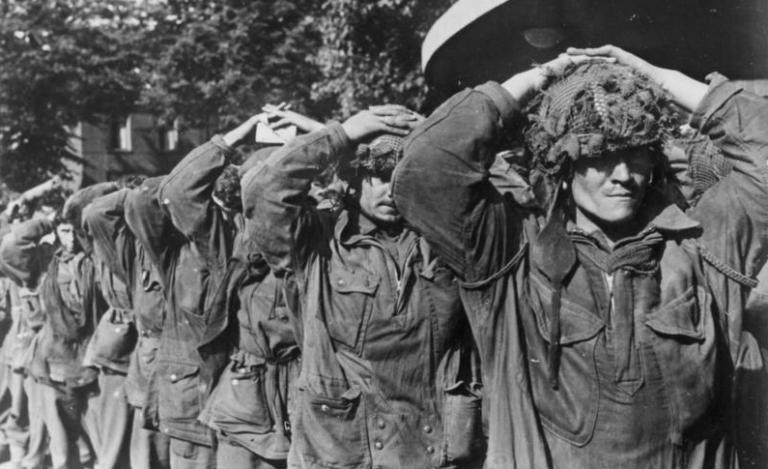
In September 1944 Harry sustained leg injuries and became a casualty from a mortar shell burst during the Battle of Arnhem. (Wikipedia – Battle of Arnhem )
‘My section had received no word of the withdrawal and at stand-to on Tuesday 26th September, we were painfully made aware of the fact that we were surrounded by the enemy’
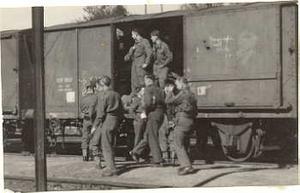
Now prisoners of war, they were taken by cattle truck to Stalag XIB at Fallingbostel in Hanover, an international POW camp. They were soon moved out of there and taken on a 3 day journey, again in crowded cattle trucks across Germany to eventually arrive in Poland at Stalag VIIIC at Sagan.
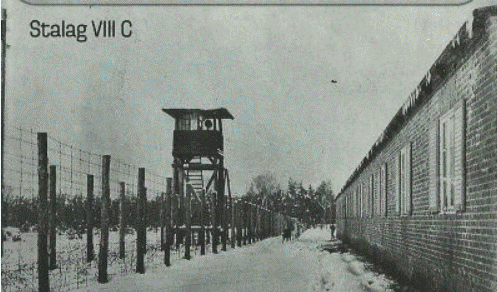
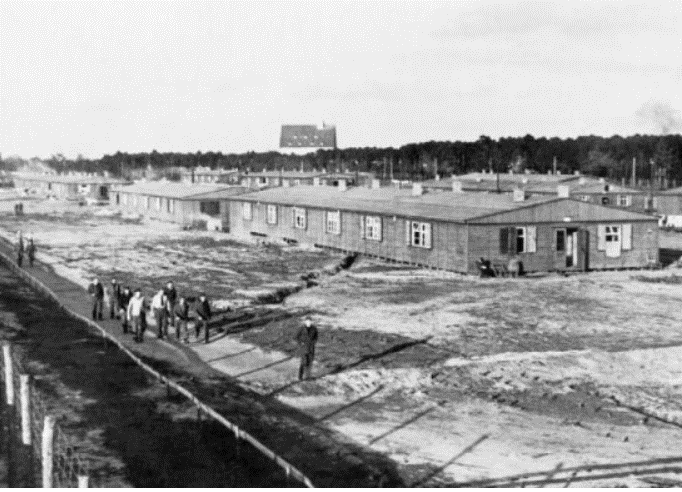
‘Life was spartan that winter. Coffee made from acorns; a soup we called skilley, devoid of anything nutritious; black bread with a date stamped on the loaf often weeks ago; goulash comprising hot water and stringy pieces of meat (horse flesh?) and foul smelling soft cheese, were samples of our daily menu. Red Cross parcels were at a premium and the very few that we did receive had to be shared between two. The war in Europe was drawing to a close. The Germans themselves were suffering severe shortages- I exchanged my watch for chocolate, which in turn I exchanged for food from one of the guards for whom chocolate was a commodity not seen in Germany for years. Fuel for the hut stove was scarce and over a period of 4 months from October to January, the bed boards, forming the base to our tiered bunks, were steadily chopped up and burnt until we were sleeping on the bare minimum to support the straw-filled sacking mattresses. It became quite unsafe to sleep in the bottom bunk. We shared our rations in small syndicates of three or four, and such is the agony, distress and jealousy of hunger that all eyes carefully watched the division of food’.
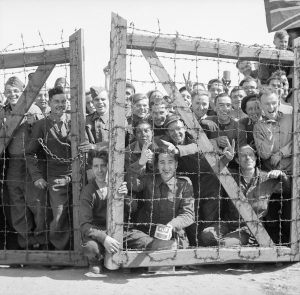
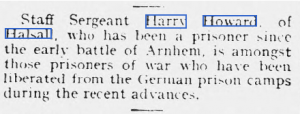
In January and early February 1945, some of the prisoners, including Harry, were marched for a month, under guard in snow and atrocious weather conditions, to Stalag IXB at Bad Orb, a town in Germany. However, not too long later, they dared to hope they may be rescued,
‘Air activity overhead encouraged us to think that freedom was near and we knew it to be true when, overnight, the camp guards fled and to our joy a US Tank unit entered the camp at dawn on 1st April 1945 – By this time we were skeletons – my weight was under 100 pounds -. We were lice ridden and had every possible stomach and bowel upset. Briefly, I was transported by the Americans to a captured airfield, bathed and de-loused and flown to England where I spent two weeks at Amersham General Hospital recuperating on glucose and water until I could begin to take solids again.’
Once well enough to leave hospital, Harry returned home to his parents who by now were living at Ashcroft Villas, Carr Moss Lane, Halsall. After 6 weeks repatriation leave, he was posted to a War Office in London.
‘This is almost the end of my 6 ½ years in uniform. My release date arrived in February 1946 just prior to which, my then Commanding Officer at the War Office, Colonel Isham, offered me promotion to W02 if I would remain for 6 more months. Also one of the Majors with whom I worked, whose family owned tea plantations in Ceylon (now Sri Lanka) offered me a job there. But I was very much in love. Ruth and I were engaged and the Halifax [building society] were very much keen to have me return to Southport.’
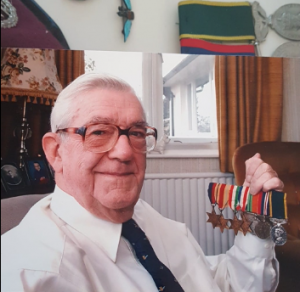
Harry and Ruth [PM1R-VBN] were married later in 1946 and went on to have their own family.
Harry passed away on 16th November 2015 aged 96 years old; he is buried at St. Cuthbert’s churchyard in Halsall with his wife Ruth.
‘… do not be taken in by historians’ histrionics and ‘gung-ho words. I was scared to death most of the time – we all were if we are honest – but esprit de corps, not showing cowardice in front of one’s colleagues, and not least battle-school training, all helped to hide any doubts one had about one’s own bravery.’
Staff Sergeant Harry Howard.
